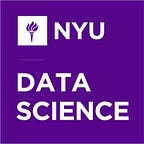According to the Data: How Social Media Matters for Protest and Activism
Bonneau, Jost, and Tucker examine social media’s role in modern politics and protest
If you’ve tweeted — or retweeted — about #MeToo, #BlackLivesMatter, #Resist, or #Occupy, just to name a few, you can call yourself an activist. Skeptics like Malcolm Gladwell, however, might call you a slacktivist. But this type of opinion relies on speculation and traditional — possibly antiquated — methods of evaluating collective action.
CDS Director Richard Bonneau and affiliated faculty members John Jost, Professor of Psychology and Politics, and Joshua Tucker, Professor of Politics, along with other researchers, have published a new article — one that relies on data-driven studies rather than speculation — about how social media impacts political protest.
Bonneau, Jost, and Tucker examine a large number of studies linking social media to political protest, and the authors offer three key conclusions.
First, social media facilitates the exchange of vital information for protest activities. Second, social media allows users to impart and receive emotional and motivational messages, either supporting or opposing protests. Third, political ideology affects information exposure on social media.
While these conclusions may seem intuitive, they are significant because they are derived from numerous studies that analyzed data from social media activity; these studies often correlate content or metadata (timestamp, location, user account, etc.) with offline events.
For example, with regard to the exchange of vital information, studies of 2013/14 protests in Turkey and Ukraine showed that Twitter and Facebook were used to facilitate organization, enable transportation, track political development, advise wounded protesters, spread motivational messages, and share international news coverage. Users across the world were able to process events together in real-time as protesters tweeted during demonstrations, but governments were also able to monitor and crackdown on opposition movements.
From a social psychological perspective, research shows that an individual’s desire or motivation to protest is affected by moral outrage, social identification, and group efficacy. To examine these motivators, Bonneau, Jost, and Tucker looked to a 2015 study that performed a qualitative analysis of a subset of 80,000 tweets from Occupy Wall Street, tagged #OWS, #occupy, or #mayday. Based on timestamps and other metadata, users who tweeted about motivation were more likely to actually protest. Data analysis methods that can identify a user’s ideology based on who they follow substantiated the fact that pro-OWS individuals were more likely to be liberal. Furthermore, liberals were found to be less likely to express anger or ideological concerns.
Ideological concerns can fundamentally affect the structure of a user’s social media network, producing what is commonly called an echo chamber. According to a statistical model that evaluates retweeting habits, conservatives have a statistically significant higher likelihood of finding themselves in an echo chamber. Three separate studies based on millions of tweets also showed that conservatives were more likely to spread disinformation, be exposed to pro-Russian disinformation, and peddle conspiracy theories; two other studies showed that “fake news” is concentrated on the ideological right.
Patterns of retweeting can materially affect the success of protests because, as two separate studies have shown, retweeting by periphery activists (people who are not actually present at protests) can account for nearly 50% of a protest movement’s reach on social media.
For future study, Bonneau, Jost, and Tucker suggest data-driven research about how political information shared on social media can be more impactful than traditional political information due to the nature of online friendship.
By Paul Oliver
